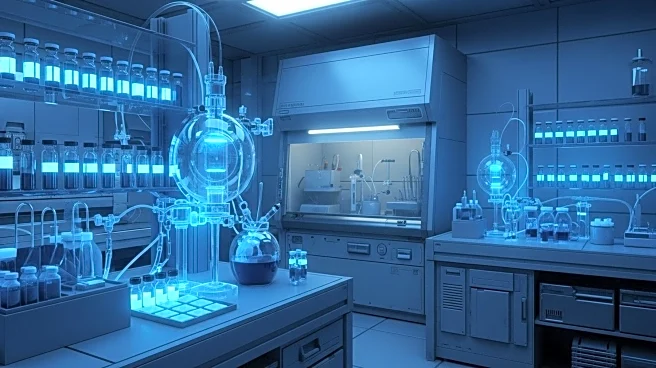What's Happening?
Biotechnology is advancing rapidly, with tools like CRISPR-Cas9 enabling precise gene editing. However, these developments raise ethical and security concerns, as the technology becomes more accessible and automated. Risks include unintended ecological impacts, potential misuse, and the possibility of creating 'mirror life' organisms that could evade natural controls. Experts emphasize the need for strict containment and international oversight to prevent harmful outcomes. AI's role in biotechnology further complicates security, as it can lower the expertise needed for complex experiments.
Why It's Important?
The rapid advancement of biotechnology presents both opportunities and challenges. While it holds potential for medical breakthroughs and environmental solutions, it also poses risks that require careful management. The ethical implications of gene editing and synthetic biology are significant, as they could lead to unintended consequences or be exploited for harmful purposes. Ensuring responsible use and global cooperation in regulation is crucial to harnessing the benefits of biotechnology while minimizing risks.
Beyond the Headlines
The ethical and security concerns surrounding biotechnology highlight the need for robust international frameworks and collaboration. As the technology evolves, it is essential to address intellectual property issues, ensure equitable access, and prevent exploitation. The potential for AI to democratize biotechnology further underscores the importance of safeguarding measures. Long-term solutions may involve developing comprehensive regulations and fostering dialogue among stakeholders to navigate the complexities of biotechnology responsibly.










